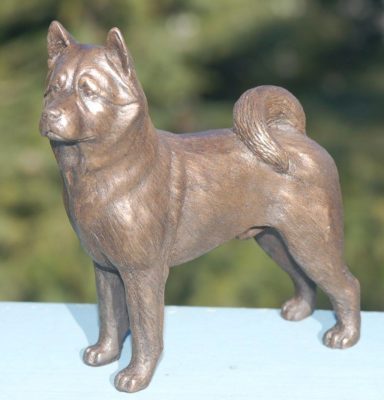
Japan enjoys many traditions, and many of them are centered around a pregnancy.
The first “dog day” of the fifth month of a pregnancy is the day on which the “Obiiwai” is done. During this ceremony, a cotton belt is tied around the expectant mother’s abdomen to protect the baby. This occasion is normally performed at a shrine because prayers for a safe delivery and healthy baby are typically part of the ceremony. The “dog day” is determined by the original Japanese calendar, chosen because those days are known to be auspicious for easy deliveries. Even now in the 21st century, this is the first gift a mother can give to her baby.
A baby’s name is officially announced to the family on the seventh night after delivery. Using a white sheet of paper and employing traditional Japanese calligraphy, the new father draws the baby’s name and date of the birth, and posts the paper on the wall. On this night, the family has dinner together making it the baby’s first ceremony after being born.
When the baby is about a month old, s/he will be dressed in his or her finest wear, and taken to a local shrine to be shown off to the gods. Prayers will be offered up wishing health and happiness for the baby.
“Okuizome” is a very traditional Japanese full-course dinner that includes foods considered to be good fortune for the baby. The meal occurs between 100 or 120 days after the birth and is marked by parents taking turns feeding the baby with wishes for their child to always have plenty of food throughout their life.
If the baby is a girl, her first March 3rd is her first “hinamatsuri,” during which time her parents decorate the hina-dolls in the house, and serve colorful sushi, sweet treats, sake to mark the joy of having a daughter. If the baby is a boy, armors and samurai dolls are decorated around the house, and koinobori, or carp banners are strewn on outside of the house to show that there’s a new male child in the family. This is an event dates back to the 7th century.
While there are other celebrations that mark a child’s life before they’re ten years old, the very first gift a baby receives in Japan is often a small statuette of an Akita dog. It is customary because the statue signifies health, happiness, and a long life.
If a person is ill, friends will also send a small statue of an Akita to express their wish for a speedy recovery.
